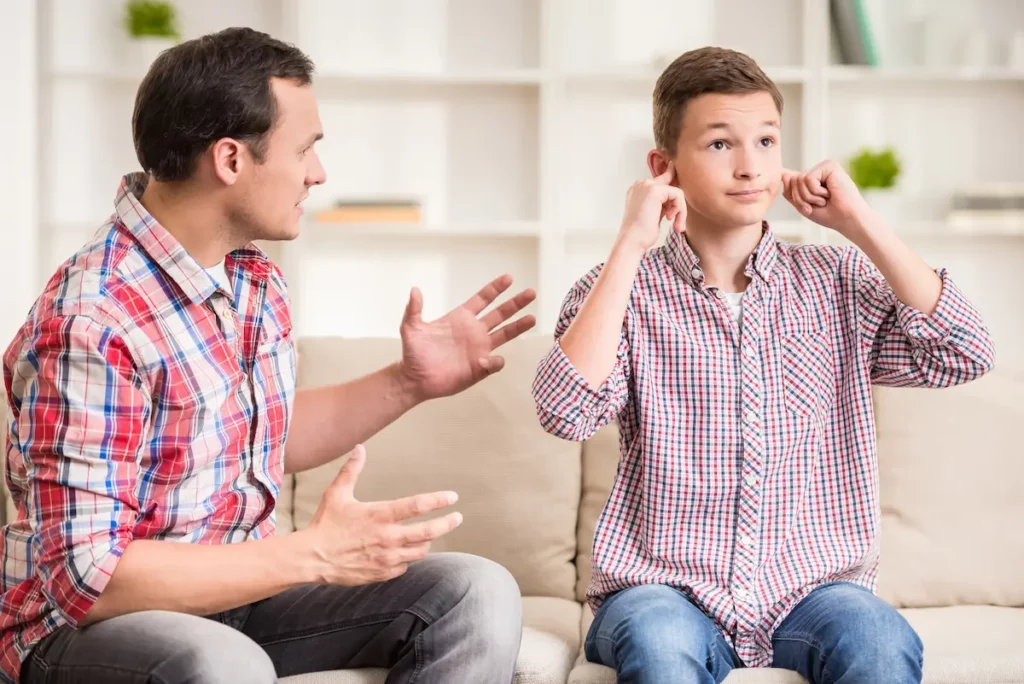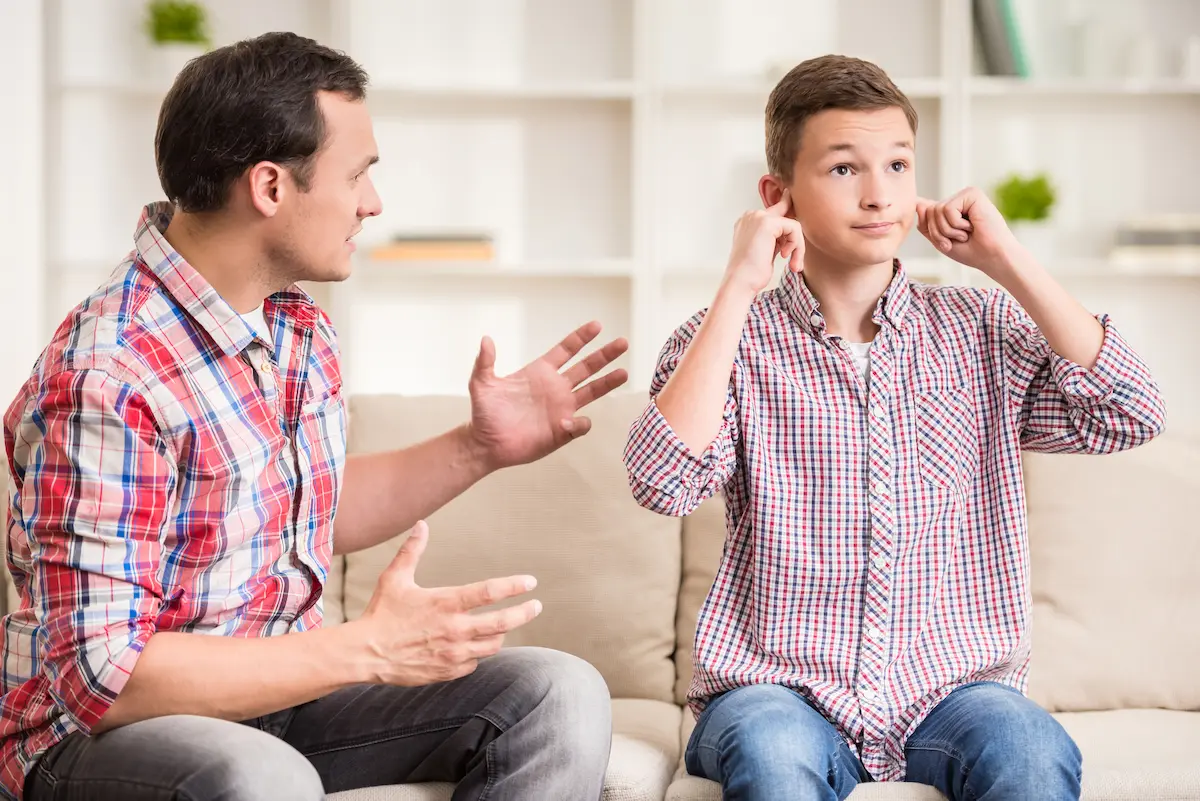It is common for a son to not like his father at some point in his life. This usually occurs when the child is finding themselves, growing, and developing. It is usually simply a phase and typically does not go on indefinitely. The father must exercise patience and find ways to bond with his son.
One of the most important duties of every parent is to ensure that their child has a childhood filled with pleasant, joyful, and cheerful memories. However, it can be challenging to do that when your child isn’t on board. When a son dislikes their father, it can be heart wrenching. So, is it just a phase? And if so, how can the relationship between the two be improved.

Related Reading: 9 Signs of Toxic Dads That Hurt Kids [BAD FATHERS]
Is My Son Disliking His Dad Just a “Phase”?
One of the things that can happen quite suddenly and unexpectedly is your son not liking or not getting along with his father. This can be worrisome as you may not know precisely what the reason is for this sudden change or whether or not the relationship will remain strained.
Fear not, as experts have proven this to be a fairly common experience. Fathers being disliked by their son is a relatively common thing, despite how difficult it is. Children choosing to favor one parent over the other is normal and times and the favored parent may vary/oscillate at various points throughout childhood (just like a child’s social groups).
This may sound untrue, but it happens more than most parents realize. It is a typical phase of a child’s growth and development. Simply put, it’s a part of their self-awareness and their capacity for decision-making. Basically, either parent may experience it. In this case, the father is the one on the receiving end of this phase in this instance.
Although the father may be a strong, present, loving, and supportive father figure, it’s not uncommon for children to prefer their moms over their dads, because mothers usually take care of them the most and are typically more affectionate/demonstrative of their affection.
Children engage with their primary caregiver more frequently, regardless of how securely they are attached to the other parent. And throughout human history, it’s been more common for the primary caregiver to be the mother (although this is changing rapidly in the 21st century).
Tips To Improve Father/Son Relationships
Father-son relationships can be challenging. Particularly when the son is a teenager or, perhaps, when the father acts like a teenager. Although it may take some time to resolve, the father must continue to be a father while being conscious of the evolving needs of his son. It’s easy to throw in the towel and call it quits, but that won’t help in the long run. Here are several ways to fix a rocky father/son relationship.
Quality Time
The first step in building a healthy relationship between father and son is for them to spend quality along time together. This can happen in any way that is appropriate for the son’s likes or interests. The goal is for the son to build experiences that build positive memories that will last a lifetime.
Things like:
- working on a project together
- going for a walk
- fishing, camping, and anything outdoors
- going on a trip
These will go a long way in mending any rocky relationship. Things like taking a trip together will have the son thinking that not only does his father love him, but he enjoys spending time with him.
Sure, we could fill this list with endless stereotypical examples, but the point isn’t the activity itself, but the opportunity the activity allows, which is a close and uninterrupted connection.
Watching movies or sports, playing father-son video games, or going out for a meal are all very nice, but they allow for too many distractions and opportunities to avoid connecting on a deeper level.
Teaching Life Skills
Another way to improve the father/son relationship is through the father helping the child gain life skills. The son may not like the father and may be standoffish, but there’s a good chance he will be eager to learn and will listen when the father is imparting some important wisdom.
However, as the father equips the son with practical life skills that go beyond what he reads in books, the son will (hopefully) start admiring their father and appreciating the knowledge that the father is sharing. This will help improve the relationship by leaps and bounds.
These practical life skills include but are not limited to:
- showing them how to put on a tie
- change a tire
- do an oil change
- clean and fold laundry
- fixing household appliances
- computer repairs
- cook a meal
- shaving
- how to approach intimate/romantic relationships
These sorts of life skills will allow the son to be confident and successful in life, especially when he “leaves the nest”.
Deep Conversations
Deep, meaningful conversations are the third way to improve a father/son relationship.
The relationship between the father is more relaxed now that they are doing things together, and the son is learning valuable things from the father. The son needs to know the answer to the many questions in life. This goes beyond practical life skills. Therefore, this is when the father can answer the son’s questions and provide direction with clear, solid answers.
This is the stage where the father bonds even further with the son by talking to the son about what is really important in life. To thoroughly improve the father/son relationship, the son must be able to talk to the father about deep things and not just how to check his tires or sports.
Related Reading: The Rising Role of “Soccer Dads”
Is My Son Disliking His Dad a Sign of Abuse?
When developing a relationship with children, sometimes parents are the least educated and untrained group. The fathers are often much worse off in this area because connections are cultivated with love, feelings, and deep care and this may be something the father has not experienced from his own dad or father figure.
While fathers certainly feel love and emotions, some men really aren’t capable of expressing feelings when they are needed. Their conception of parenting entails a simple approach, where 0 denotes normal behavior, and 1 represents the application of punishment or controlling behavior.
Because of this, it is worth acknowledging that your son may not like his father because the father is emotionally distant or emotionally, verbally, or physically abusive, or both. If your son has been deeply wounded by the person they thought they could trust, your son will likely develop feelings of mistrust and borderline hatred.
Related Reading: How to Tell If Your Father Is Depressed
It could also be because of a lack of bonding or emotional connection, a lack of effective communication, the father’s lack of parenting abilities, etc. However, physical or emotional abuse are significant factors worth looking into.
Click here for more information on how and when to report child abuse and/or neglect.
Conclusion
Do not, above all, give up. Although it might appear that your child and their father are doomed to be estranged forever, the child still cares about the father and even loves them. Soon enough, the phase will pass, and the father and son will once more be close.
The tips mentioned above should help make this phase as short as possible. Remember that knowing the reason behind the dislike is imperative as it could be something infinitely more serious, like abuse.

